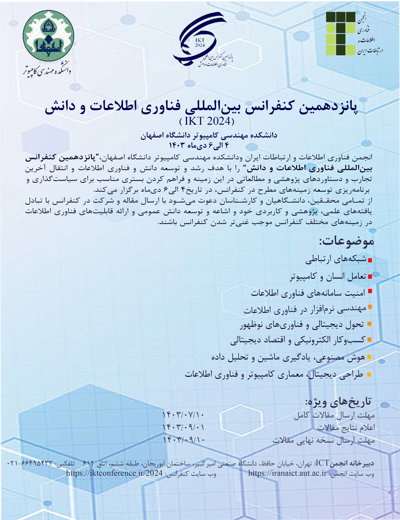0% Complete

نویسندگان :
کلمات کلیدی :
چکیده :
لیست مقالات بایگانی شده
Hossein Sekhavaty-Moghadam - Marzieh Hosseinkhani - Dr Azadeh Mansouri
Ahmad Nameni - Amir Ghafarian Daneshmand - Omid Mahdi Ebadati E
سیدرضا قادریان خیرآبادی سیدرضا قادریان خیرآبادی -
Rushil Patel - Sana Narmawala - Nikunjkumar Mahida - Rajesh Gupta - Sudeep Tanwar - Hossein Shahinzadeh
ریحانه حسن رحیمی - فهیمه یزدان پناه
عطیه منعمی بیدگلی - رضا مهدوی
Negin Bagheri Renani - Elham Yaghoubi - Mina Mohammadirad
زهرا عمیقی - مرتضی یوسف صنعتی - میرحسین دزفولیان
زهرا کلوندی - دکتر مهدی سخائی نیا زهرا کلوندی - مهدی سخائی نیا -
علی خلیلی - محمد مصلح - محمد خیراندیش






